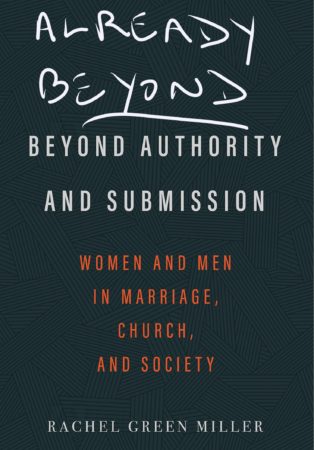My installment on Rachel Miller’s next chapter will be brief. What I want to do is explain how the structure of her thesis is hopeless, and this should only take a few minutes.
In the next chapter, Rachel Miller takes up the views of the Victorians. She begins by quoting Queen Victoria. “God created men and women different—then let them remain each in their own position” (Loc. 967). I will give you a moment to stop fuming.

Remember that her thesis is that 1. the pagan Greeks and Romans had very negative views of women, 2. the coming of Christianity changed all that, and that 3. then the Victorians reintroduced all the old pagan assumptions. She argues that the influence of the old Greco-Roman culture “had waned,” and so the stage was set for the villain of the piece.
“Old, pagan themes about women, men, and gender resurfaced”
Loc. 988
“After the Victorian era, ancient Greek and Roman beliefs about women and men were taught as if they were biblical”
Loc. 1027
That’s her thesis in a nutshell.
Now in order for this argument to make any sense at all, Miller has to show that the emergence of Christianity dealt a death blow to the old pagan assumptions about women, a functional triumph which lasted over a thousand years. Women were treated like dirt by the Greeks and Romans, Christianity liberated them, in a liberation that lasted for a stack of centuries, and then the Victorians re-enslaved them.
For the historical argument to work, this liberation of women through Christianity needed to pervade the time of the Carolingians, jump around in the era of the Merovingians, and exult as the glory of the Holy Roman Empire, along with other appropriate verbs doing their thing in all of the other European cultural configurations and overlaps. In short, Charlemagne, aghast, needs to look at Queen Victoria and say, “Why dost thou bring the sisters back into bondage?”
For anyone acquainted with our actual cultural history, this is laugh-out-loud risible.
So what were the prevailing attitudes toward women between say, the fall of Rome and the rise of the Victorian era? If those prevailing attitudes were anything like what we find throughout all human history with the exception of the last generation of feminism, then Rachel Miller has a thesis that went up like a rocket but came down like a stick.
So let’s just take a random sampling, shall we?
In a private letter, Calvin wrote this about women rulers. They were “a deviation from the primitive and established order of nature.” In his commentary on 1 Corinthians he said this: “unquestionably, wherever even natural propriety has been maintained, women have in all ages been excluded from the public management of affairs. It is the dictate of common sense, that female government is improper and unseemly.” One is left to wonder how the Victorians got at him. I suspect H.G. Wells and time travel.
I pass over John Knox with a respect that I think we all understand.
Let’s go back in time a bit to Thomas Aquinas:
“. . . A female is deficient and unintentionally caused. For the active power of the semen always seeks to produce a thing completely like itself, something male. So if a female is produced, this must be because the semen is weak or because the material [provided by the female parent] is unsuitable, or because of the action of some external factor such as the winds from the south which make the atmosphere humid.”
Enough with the Christians. What about Napoleon? Although he was in the 19th century, that most culpable century, we ought not to think of him as a slave to English fashions of thought.
“Nature intended women to be our slaves . . . they are our property; we are not theirs. They belong to us, just as a tree that bears fruit belongs to a gardener . . . . Women are nothing more than machines for producing children.”
And Rousseau was another pre-Victorian piece of work.
“The whole education of women ought to be relative to men. To please them, to be useful to them, to make themselves loved and honored by them, to educate them when young, to care for them when grown, to council them, to console them, and to make life agreeable and sweet to them—these are the duties of women at all times, and should be taught them from their infancy.”
To be clear, I do not object to Miller’s claim that the Christian faith was a transformative reality for women. True enough. I just don’t think that Christians flipped on the lights for a thousand years until the Victorians blew the fuse. The yeast works through the dough slowly. The mustard seed grows slowly.
And Miller’s thesis is therefore staggeringly simplistic.

